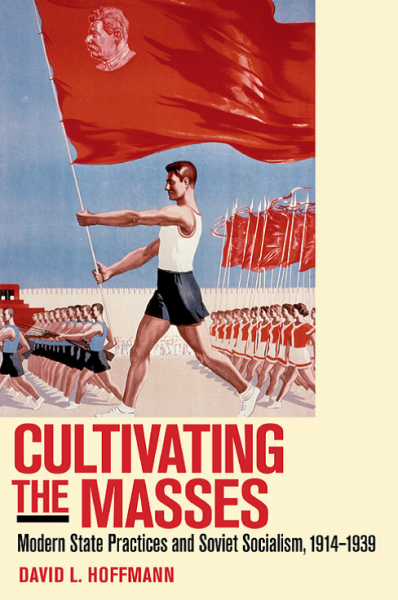David Hoffmann

Education: B.A., History, Lawrence University; M.A., History, Columbia University; M.Phil., History, Columbia University; Ph.D., History, Columbia University.
David Hoffmann is Professor of History at the Ohio State University.
When did you first develop an interest in Slavic, East European and Eurasian Studies?
I began college as a math major, but after taking a course on European history, I became fascinated with the Russian Revolution. I wondered how an event that seemed to promise liberation and equality resulted instead in a Stalinist dictatorship. In graduate school, I continued to view Soviet history as the “Great Socialist Experiment,” and sought to understand where it went wrong. What was to blame for Stalinism—socialist ideology, Russian authoritarian traditions, Stalin’s personality? None of these explanations seemed satisfactory, and for my dissertation I chose a social history topic, the massive migration of peasants to Soviet cities in the 1930s. Was it possible that peasant patriarchalism provided a social basis for Stalinism? My research contradicted this supposition. As I described in my book, Peasant Metropolis: Social Identities in Moscow, 1929-1941 (Cornell University Press, 1994), new urban dwellers repeatedly frustrated Soviet authorities’ efforts to mold and control them.
How have your interests changed since then?
Eventually I concluded that, “What went wrong with the Great Socialist Experiment?” was a Cold-War era question best left behind. While the Soviet system can be considered one variant of socialism, it contained many elements common to other modern political systems. When working on my book, Stalinist Values: The Cultural Norms of Soviet Modernity, 1917-1941 (Cornell University Press, 2003), I was struck by the similarities between Stalinist reproductive policies and those in other countries during the interwar period. I began to see Soviet pronatalism as one particular manifestation of an international trend toward state attempts to manage reproduction. 
In Cultivating the Masses: Modern State Practices and Soviet Socialism, 1914-1939 (Cornell University Press, 2011), I placed not only reproductive policies but Soviet welfare provision, public health, surveillance, and state violence in an international context. While I did not argue that the Soviet case was typical, or even a logical extreme, of the more general phenomenon of state interventionism, I came to see it as an integral part of world history. Through such an approach I sought to understand Soviet history not as a cautionary tale about socialism. Instead I argued that the Soviet system represented one particular response to the modern era – especially the challenges of mobilizing the population for industrial labor and mass warfare.
What is your current research project?
I am writing a book entitled The Stalinist Era for the Cambridge University Press series, “New Approaches to European History.”
What do you value about your ASEEES membership?
Above all, I value the annual conference put on by the ASEEES. It provides an opportunity to present research and to learn about exciting new work in the field. I spend most of my time at the conference going from one panel to another, and I always learn things that help both my teaching and my research. The conference also gives me a chance to meet people in the field. There are many scholars whose written work I have admired but whom I never would have met were it not for the conference. Perhaps most importantly, the annual meeting lets me see friends from graduate school and from the IREX exchange. These friends are now scattered across the country, so the ASEEES conference is my only opportunity to see them regularly.
Besides your professional work, what other interests and/or hobbies do you enjoy?
I spend all my free time with my daughter and son. I have always loved to travel, not only to Russia and Eastern Europe but to other parts of the world as well. When my children were very young, it was too difficult to travel. Now that they are old enough, I have begun taking them on international trips each summer.
